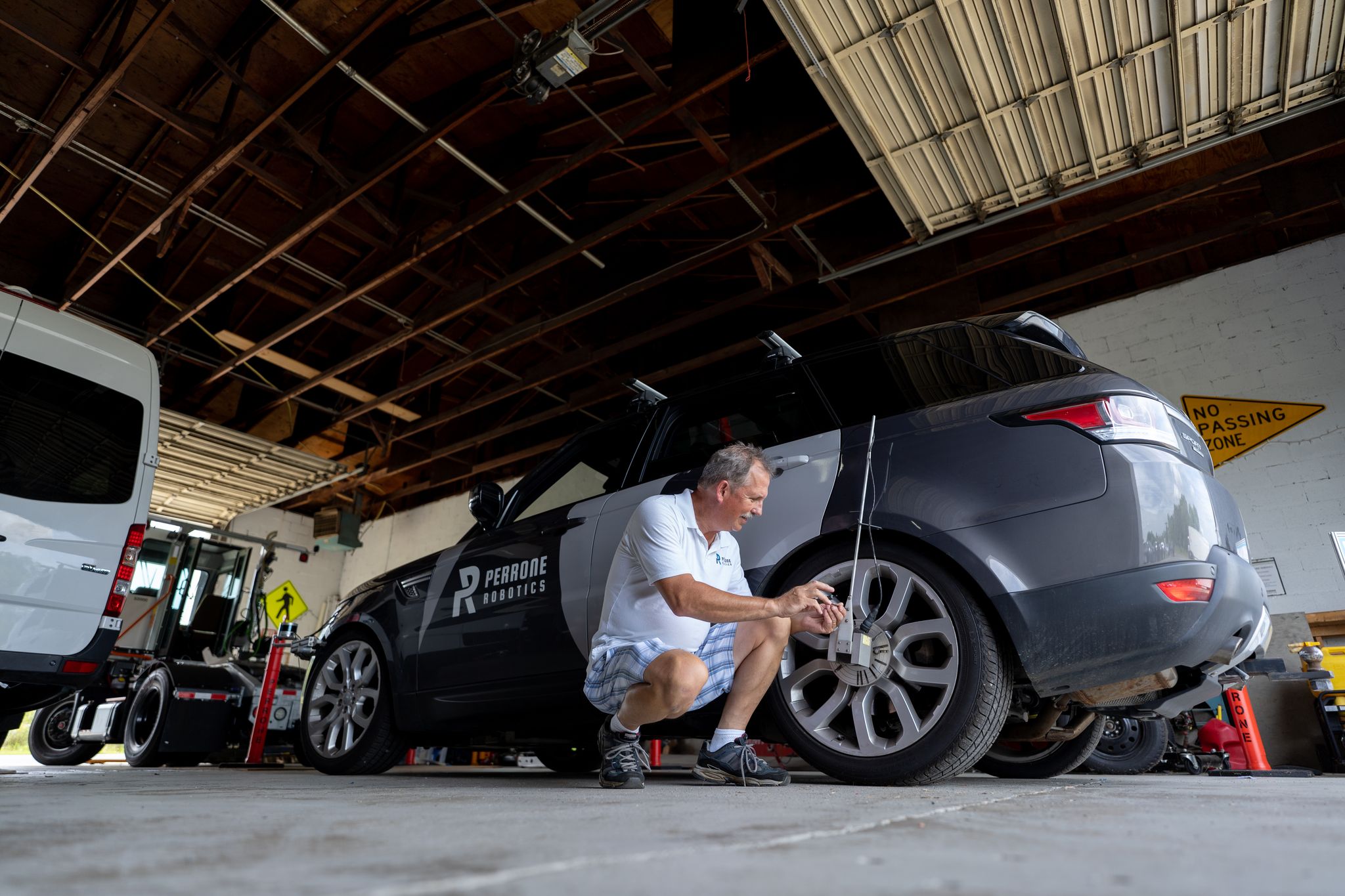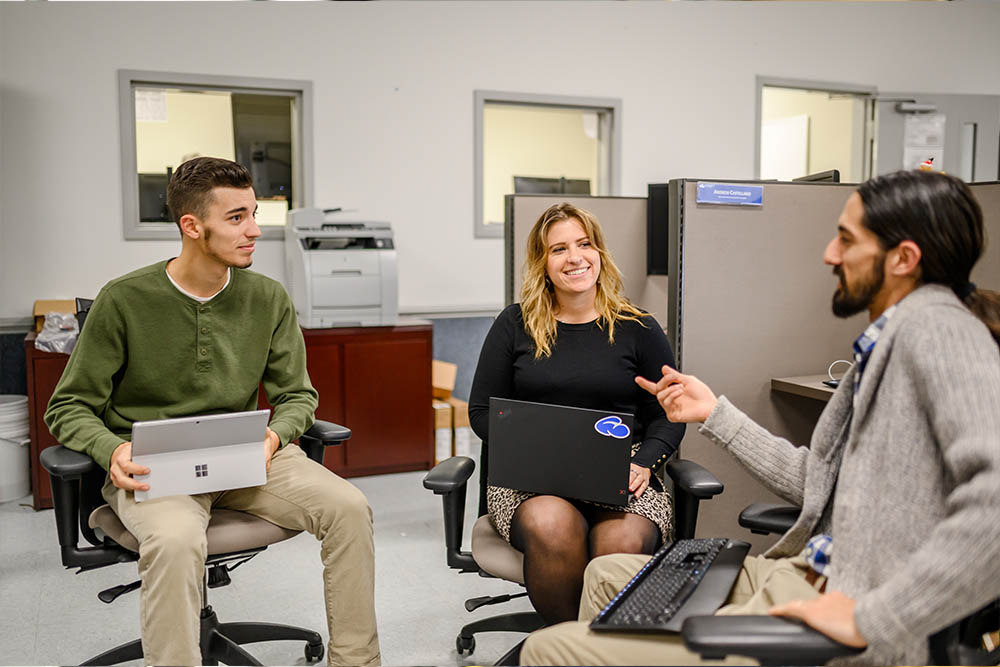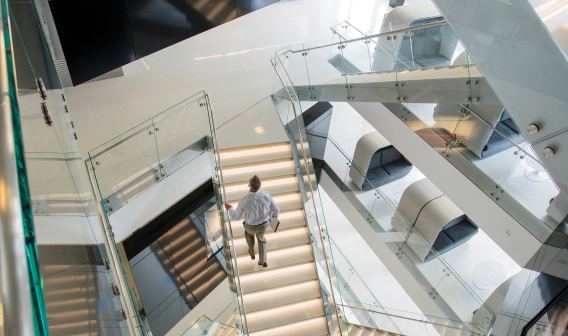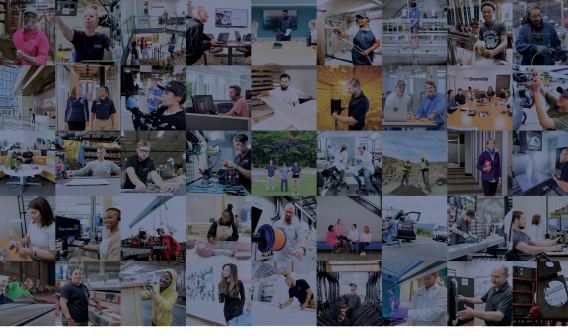Virginia's Smaller Metros Prove Fertile Ground for Tech Headquarters
Town-and-Country Lifestyle, Access to University Talent Attract Investment
While Virginia's larger metro areas along Interstates 95 and 64 have been recognized as technology hubs, the Commonwealth’s smaller metros are leveraging their unique strengths to create their own tech clusters.
Numerous tech companies have established new headquarters or expanded their operations in Virginia’s smaller metros, in some cases revitalizing long-abandoned office buildings and factories. With a steady pipeline of tech-savvy graduates from local universities — in addition to low turnover and favorable operating costs — Blacksburg, Charlottesville, and Lynchburg continue to entice tech startups and expansions.
While recruiting to Blacksburg or Charlottesville requires a different sales pitch than drawing talent to larger metro areas, technology companies have had success with graduates of local universities and potential employees looking for a different lifestyle.
“You have to be honest with people about what Blacksburg is and isn’t,’’ said Chris Riegger, chief operating officer of Blacksburg-based healthcare technology consultant Modea, which announced a 20-job expansion last year.
Riegger grew up near Fredericksburg, but spent much of his professional career outside Virginia in New York City and London. He was initially unsure about returning to the Commonwealth.
“After graduating from high school, I never wanted to come back,” he said. “But it’s been a great move for the family. We love it here.”
Modea plans to nearly double its workforce this year. Another area headquarters, autonomous vehicle manufacturer Torc Robotics, announced an $8.5 million expansion last year that will create 350 new jobs in Montgomery County near Blacksburg, while mobile software developer Ozmo announced an expansion in 2019.
Given the national job upheaval caused by pandemic-related restrictions, rising real estate costs, and an eventual return to pre-COVID traffic congestion, Reigger and other Virginia-based executives say smaller metros could benefit from a shift away from traditional tech hubs such as Silicon Valley and Seattle.
Tobias Dengel, CEO of Charlottesville-based software strategy, design, and development company WillowTree, says his company has a "college-town advantage" when it comes to luring workers, especially the work-life balance of shorter commutes and quick access to outdoor leisure pursuits.
“Once you’re here, it’s hard to leave,” said Dengel, who joined WillowTree after moving from Brooklyn to Charlottesville when his wife Lynn began a surgical residency at UVA’s University Hospital.
A clear pattern emerges when looking at expansion announcements at tech companies. Employers recognize that not every developer wants to live in dense areas, and Virginia’s top-notch university system — ranked second-best in the country and the best in the South by SmartAsset — provides a pipeline of candidates who are already familiar with Virginia’s charms.
“Our proximity to Virginia Tech provides us a unique advantage of access to top talent, while also being able to offer exceptional quality of life for our employees,” Ozmo CEO David Catalano said when the company’s expansion was announced. Paul Perrone, CEO of Albemarle County-based autonomous car developer Perrone Robotics, sounded a similar note when announcing his company’s 2017 expansion: “This region offered the perfect blend of high tech energy and a cultured university town with arts, high quality of living, and natural beauty that is unmatched in the U.S.”
Those factors have enabled steady growth for companies willing to make the investment. WillowTree, which began in 2009 with three employees, now has more than 300 in Charlottesville. Dengler says WillowTree is planning on an additional 200 hires by 2026.
To accommodate that growth, WillowTree moved from downtown to renovated space in Albemarle County’s historic Woolen Mills textile factory, where a brewery and restaurants have already been established. Other selling points for prospective job candidates: a newly linked recreational trail and kayaks for WillowTree employees who want to paddle the Rivanna River.
Other Charlottesville-area technology companies have recognized the benefits of the location and elected to double down on the area. Albemarle County-based gaming software developer Castle Hill Gaming began work on an expansion of its headquarters in 2019.
In addition to Amazon’s 2018 decision to locate its HQ2 in Virginia, Virginia’s tech headquarters boom has extended to other smaller metros. Greater Fredericksburg (cybersecurity engineering and consulting firm GRIMM, Stafford County) and the Northern Shenandoah Valley (unmanned aircraft systems provider and original equipment manufacturer Silent Falcon UAS Technologies, Warren County) have successfully attracted tech headquarters since the beginning of 2020. Lynchburg — like Blacksburg and Charlottesville, home to a major university in Liberty University, along with several other colleges and universities in the surrounding area — is seeing benefits from its own homegrown tech ecosystem.
“I’m a big fan of the people here, the brainpower and the work ethic. I call it blue-collar brilliance,’’ said Carroll Moon, co-founder and chief technology officer of CloudFit Software, headquartered in Lynchburg.
Moon, a former Microsoft employee, was raised on a farm near the city. The cloud computing services firm has about 150 workers across 22 states, but plans to hire up to another 100 workers over the next year, including many in the Lynchburg area. CloudFit was awarded Microsoft’s U.S. Partner Award for Industry-Government in 2020.
Moon has developed a local talent pool through paid internships for high school and college students, but has also recruited workers from Dallas, Seattle, and other large cities.
“It may sound arrogant, but we aren’t having trouble hiring. People are choosing to move here,’’ Moon said. “The cost of housing, the quality of living, how far their money goes.”
Moon hopes CloudFit will inject broader vitality into Lynchburg by moving its headquarters to downtown’s Carter Glass House, built in the 1800s and vacant since 2007. “I hope it’s life-changing for folks and makes an impact on the region,’’ he said.








